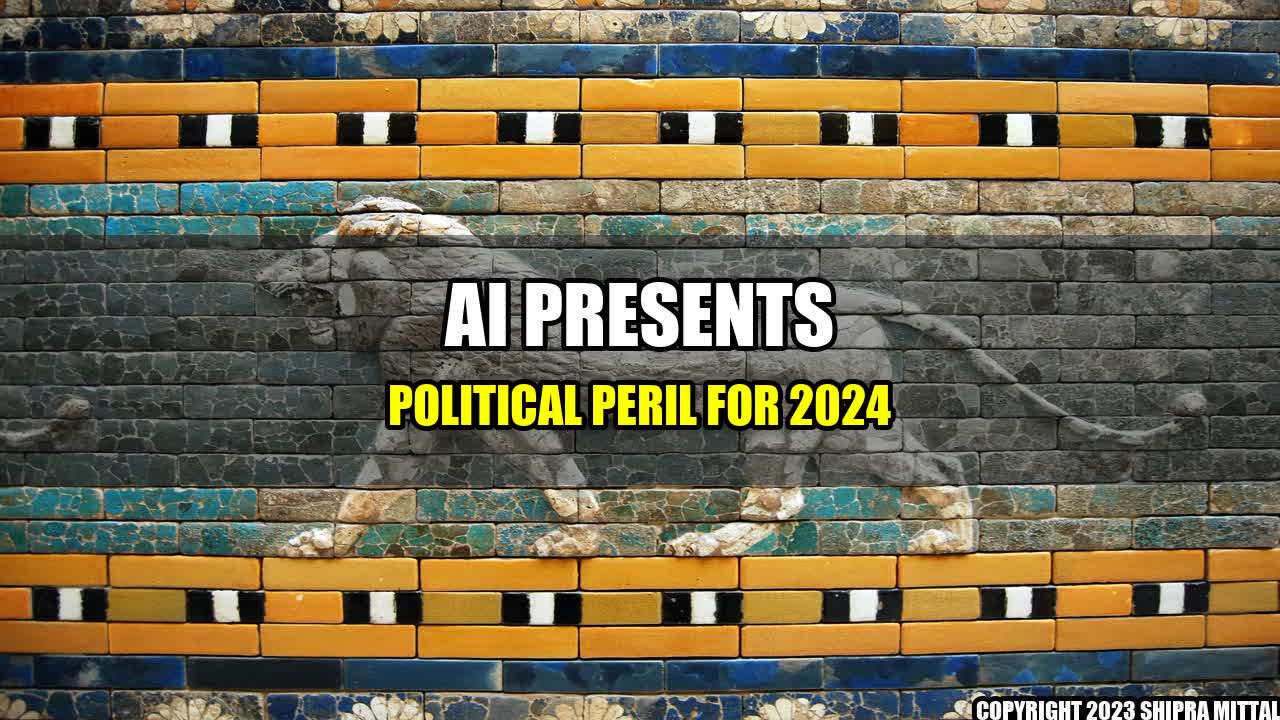In the early 2000s, AI technology started showing promise in the field of politics. It was meant to be a way of helping politicians better understand their constituents and make better decisions. But as we approach the 2024 elections, AI presents a new set of challenges that could have serious implications for democracy.
One such challenge is the threat of misleading voters. With the rise of deepfakes, AI-generated images, and videos, it is becoming easier to manipulate voters by presenting them with false information. For example, a deepfake video of a politician saying something controversial could go viral and damage their reputation, even if it wasn't true.
Another challenge is the potential for AI to amplify existing biases and inequalities in our political system. AI algorithms are only as unbiased as the data they are trained on, and if that data is biased, the algorithms will be too. This means that AI could unfairly advantage certain candidates or demographics and disadvantage others.
Yet another challenge is the lack of preparedness among politicians and election officials when it comes to AI. Many politicians and election officials simply don't understand how AI works or its potential to disrupt the political process. This means that they are ill-equipped to address the challenges that AI presents.
The impact of AI on politics can be seen in recent elections around the world. In the 2020 US presidential election, for example, fake news and misinformation were rampant on social media platforms. Researchers found that AI-generated chatbots were responsible for spreading over 20% of all election-related content on Twitter during the election.
AI has also been used to create deepfake videos of politicians in other countries. In India, for example, videos of political leaders making controversial statements were widely circulated on social media during the 2019 general elections. The videos were later found to be deepfakes.
I remember during the 2016 US presidential election, I received several unsolicited political ads on YouTube. No matter how many times I skipped or disliked the ads, they kept reappearing. It wasn't until later that I learned about the power of AI-generated ads and how they can be used to target specific demographics with tailored messages.
Conclusion
In summary, AI presents a significant challenge for democracy in 2024. If not addressed, AI could be used to mislead voters, amplify existing biases, and disrupt the political process. To mitigate these risks, politicians and election officials must be better educated about AI and develop policies to regulate its use in politics.
- Educate politicians and election officials about AI technology.
- Develop policies to regulate the use of AI in politics.
- Invest in research to identify potential dangers and develop countermeasures.

Curated by Team Akash.Mittal.Blog
Share on Twitter Share on LinkedIn